published: 4 /
10 /
2011
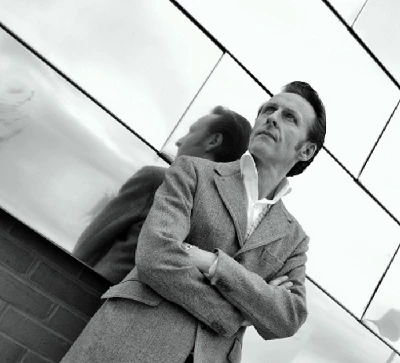
John Clarkson speaks to Paul Simpson from Liverpool post-punk band the Wild Swans about his group's first album in twenty two years, 'The Coldest Winter For a Hundred Years'
Article
There are few bands that have met with such initial poor fortune as the Wild Swans, and yet who have managed to come back after a long absence so remarkably and successfully.
The Liverpool band, which is focused around vocalist Paul Simpson, formed in 1980. They seemed destined for early major success, touring in support of Echo and the Bunnymen on their ‘Heaven Up Here’ tour across the UK in the Christmas of 1981, and releasing their debut single, ‘The Revolutionary Spirit/God Forbid’, to critical acclaim in early 1982 on Zoo Records. Internal tensions, a lack of manager and the folding of Zoo Records, however, lead to their break-up shortly afterwards in sudden acrimony.
Paul Simpson went on to form Care with the Lightning Seeds’ Ian Broudie, with whom he released three singles including 1983 chart hit ‘Flaming Sword’, before reforming the Wild Swans to unhappy effect with original members, Ged Quinn (keyboards) and Jem Kelly (guitar), in 1985.
Their 1988 debut album, ‘Bringing Home the Ashes’, which Simpson told Pennyblackmusic in a previous album that he “can’t abide”, was unfocused and suffered from an overkill of 80’s production values. Its 1990 follow-up, ‘Space Flower’, which like its predecessor was released on Sire Records, was recorded after both Quinn and Kelly had again left the group, and was described by Simpson in the same interview as “more of a solo album featuring a lot of mates.”
The Wild Swans reformed in 2009 after an absence of nearly two decades, during which Simpson had concentrated largely on his instrumental electronic solo project Skyray, Their two vinyl only singles of that year, ‘English Electric Lightning’ and ‘Liquid Mercury’, finally matched up all the potential hinted at by ‘The Revolutionary Spirit’ in their lush sound, chiming sense of melody and timelessness. The Wild Swans’ new album, ‘The Coldest Winter For a Hundred Years’, which was released in early August and like the singles came out on independent label Occultation Records, builds on this further.
‘English Electric Lightning’ was a half jaded, half nostalgic six minute summary of British social history upon which Simpson listed everything that he felt had been good and detrimental for Britain from Geoffrey Chaucer and John Milton to Princess Diana, and from Johnny Rotten to Margaret Thatcher. ‘Liquid Mercury’ meanwhile found him looking back wistfully on the early days of the band and his youth, and his then eight pounds a week flat which has now been converted into a bistro.
The other songs on ‘The Coldest Winter For a Hundred Years’, an album primarily about both spiritual and personal loss, develops these themes. Opening track, ‘Falling to Bits’, is a rallying cry against what Simpson sees as the artistic and moral decline of his native city, while closer ‘The Bluebell Wood’ pays testimony to the woods where he used to play as a child and which have been demolished to be replaced by a shopping centre. In between ‘Chloroform’ pays tribute to the bravery of his grandfather, who fought in the trenches of the First World War, and his dad, whose ship in the Second World War was torpedoed by U-boats. The eerie ‘Lost At Sea’ is told from the perspectives of a dead friend and his late father, both of whom died suddenly, while the melancholic ‘When Time Stood Still’ has Simpson remembering some of the great punk and alternative records of the 1970s on a journey home to Liverpool.
Ged Quinn, who is now a successful painter, remains an honorary member of the Wild Swans, playing piano on ‘English Electric Lightning’, and has contributed the artwork to all three of the Wild Swans’ releases since they reformed. The rest of the current line-up of the Wild Swans includes guitarists Ricky Rene Maymi (Brian Jonestown Massacre) and Mike Mooney (Spiritualized, Lupine Howl, Julian Cope); bassist Les Pattinson (Echo and the Bunnymen); young keyboardist Richard Turvey and drummer Steve Beswick (Slipstream).
Pennyblackmusic spoke to Paul Simpson in September a few days before the Wild Swans was due to fly to Manilla to play a mini tour of the Philippines, and found him planning the Wild Swans’ next album after ‘The Coldest Winter For a Hundred Years’
PB: Your world view on ‘The Coldest Winter For A Hundred Years’ seems to combine a yearning for the past and the days that defined you with a complete disgust at the way the world is thirty years on. Would you agree with that description?
PS: I would do. I think that is pretty much true. Funnily enough though the political climate is not too different from 1981 and when we were doing ‘Revolutionary Spirit’. We also had terrible weather that Christmas when we were touring with Echo and the Bunnymen, and now we have also had riots.
It is really strange, but I am wondering if it has taken thirty years for the cycle to come round. I had always claimed the Wild Swans were hexed. We couldn’t get a break in the early 1980s, but things are going remarkably well at the moment, touch wood.
At the risk of sounding barking mad I have always looked on the Wild Swans though in a magical way, and I have always had a belief despite all the barriers that were against us that things would come good one day there. It feels like people are listening now whereas originally they weren’t.
I am my own worst critic, but even I don’t hate the ‘The Coldest Winter For a Hundred Years’, which is amazing for me (Laughs) because I don’t like anything that I do. I am very proud of the middle section of ‘Liquid Mercury’ and ‘The Bluebell Wood’ in particular. They are touching upon what I have always wanted to do. There are still things that I don’t like about it and I have still got my problems with the record. I feel that I should have switched the running order, and put ‘English Electric Lightning’ where ‘The Bluebell Wood’ is at the end of the album and vice versa. I think that ‘English Electric Lightning’ where it is breaks up the flow of the record. I am a little frustrated that it is not perfect, but overall I am pretty pleased with it.
PB: Liverpool has been made European City of Culture, and is a more prosperous city and in a better state than it was thirty years ago, yet you seem to suggest time and time again on this album and tracks like ‘Falling to Bits’, ‘Liquid Mercury’ and ‘Bluebell Wood’ that it seems to have lost something essential and vital. What is your prime objection to the Liverpool of today?
PS: It used to have a lot more character, especially in terms of music. Mathew Street, for example, was always the main drag and a flash point for bands and artists. You used to get cool little cafes where bands would go and play. Now it is just a conjunction to Liverpool 1 and a poor man’s traffic centre. It is totally boring and anonymous, and just like any other street in a major city.
I am obviously not young anymore. I remember getting on the bus in 1976 to go down to Eric’s and there was a teddy boy bus conductor (Laughs), and he had read about the Pistols and the Bill Grundy thing and he was saying, “It is all rubbish. The punk thing is not good as Eddie Cochran and you should have been a teenager in the 50’s,” and I was like, “Yeah, shut up, Grandad,” but he was right in fact. ‘76/’77 was a pale imitation compared to how exciting the original rock ‘n’ roll revolution must have been and how shocking it must have been to see teddy boy fashions on the street.
I feel that everything has got so much more desperate now though. The tribes are so varied and youth culture has been hijacked by Sony. I feel sorry for teenagers, but at the same time I am kind of disappointed when I talk to kids. They are a load more confident than my generation for starters. They are over confident actually. What drives me especially crazy though is that a new album or a new download only has the same value to them as a new computer game or a new phone. None of them are more important than anything else.
When I was young, you would save up to buy an album. It would take you a month. Then once you had bought it you wouldn’t put it on. You would stare at the cover for the day to glean as much information as you could (Laughs). You couldn’t get that much information pre-internet, only what you could glean from the ‘NME’ and the ‘Melody Maker’. It is all too easy now.
One of the guys in the band, the keyboard player, Richard Turvey, is only 23, and I have been meeting a lot of his friends. They have all got all this information available with a click on their phones. It all just seems to come too easily now.
PB: ‘When Time Stood Still’ tells of a journey home in a failing car to Liverpool. You name check on it all these albums and songs like ‘Raw Power’, ‘Transformer’, ‘Aladdin Sane’ , ‘Horses’ and ‘Little Johnny Jewel’. Were you trying to make the point with that of how magical these albums were to you basically?
PS: Absolutely. It was inspired by a journey that I made back from Henry Priestman’s place in Anglesey (Henry Priestman was the keyboardist and vocalist in the Liverpudlian groups Yachts and the Christians, and also guests on backing vocalson ‘The Coldest Winter For a Hundred Years’-Ed). I was travelling back over Runcorn Bridge, and thinking about how important music was to me and remembering when it had a currency and much more value. The first verse is about the pre-punk albums that informed me and the second verse is about the other singles and albums since then that I remember having a big influence on me.
PB: ‘Lost At Sea’ is about the deaths of your friend Jim and father, and ‘Chloroform’ is about your grandfather and father’s experiences in the trenches and the Atlantic during World War One and Two. Do you see ‘The Coldest Winter For a Hundred Years’ as not just being about the spiritual loss of society, but also about personal loss?
PS: Yes, but it wasn’t intentional. Often I don’t even know what I am writing about until afterwards and the record has come out. My dad died seven years ago now, but my mother died just when we were finishing mixing ‘The Coldest Winter For a Hundred Years’. My sister and I had pretty much looked after her for the previous ten years, so it all informed the record, although not necessarily consciously.
PB: Why did you decide to leave the title track of ‘The Coldest Winter for a Hundred Years’ and to keep it just as the B side of the ‘English Electric Lightning’ single?
PS: In the post punk days you used to get bands that had an album title that wouldn’t be on the record, but would appear instead on another record or a single.
There was some discussion amongst the band about whether to put it on as it was a spoken word track. We decided not because on a purely sonic level we recorded it early, very cheaply and with a different engineer. There was only so much that we could do with it without re-recording the music, and I didn’t want to do that because there is something very special about that B side. It also features me playing the piano as well, which I am not very good at. There was some talk about maybe saving it and ‘The Wickedest Man in the World’ (The B side of ‘Liquid Mercury’-Ed), both of which are spoken world tracks, and doing a spoken word album, a companion album, but we never got things together enough to do that.
PB: Is that something that you would consider in the future?
PS: I would love to maybe at some point. I love that spoken word stuff and if we do more singles I would always want them to have a lengthy spoken word number. With B sides, the focus is less tight and more relaxed, and they often as a result have a spirit to them which A sides and album tracks don’t.
PB: Ricky Mayne Rami joined the band because he was a massive fan of the Wild Swans. He is American and spends a lot of time in the States. How did you become involved with and meet him?
PS: I had heard through Echo and the Bunnymen’s management and Will Sergeant-I went to school with Will-that this guy from the Brian Jonestown Massacre was a big fan. I kept hearing this for years. Ricky played several gigs in Liverpool and I couldn’t go for various reasons, and then eventually he got in touch with me personally to see if I would be interested in going to see the Jonestown Massacre.
Just as I was parking the car to go to the gig, I saw Mike Mooney who I hadn’t seen in years talking to someone, and I stopped the car and jumped out and gave Mike a hug, and it just happened to be Ricky that he was talking to. They were friends. I invited Ricky around and he asked if he could hear some stuff, and I played him some home demos that I had done for the Swans and he started playing along. Then Mike came over and it just seemed obvious to start working with these guys.
PB: Has it been difficult involving Ricky because of his other commitments?
PS: It works out quite well because Ricky is such a larger than life character. If he was a food stuff, he would be something spicy. He is a life force. We do have quite a tempestuous relationship. I am not the sort of guy who wants to be on tour 365 days a year. I like doing things occasionally, while Ricky in contrast is the complete opposite.
I am not even going to see Ricky now until we do these dates in the Philippines. We are going to meet him and rehearse over there. To be honest I probably won’t even see the rest of the guys until we meet at the airport either. That is just the way it is.
Mike and I met on the night of the Toxteth Riots and it is nice to be playing with him, but again we don’t hang out that much in Liverpool. We are again very different. He is a very laidback, relaxed kind of guy and I am much more titanic. It is quite a volatile mix in a lot of ways.
PB: Ged Quinn played the keyboards on ‘English Electric Lightning’ and he has done the art work for both the singles and the album. He has earned much acclaim as a painter. Do you still see him as a member of the band?
PS: I do. It is ridiculous really, but I do. I love Ged to bits. Ged had this habit in the early days of leaving the band the night before an important gig (Laughs), but it was always for his art. He had to be somewhere for his paintings. When we first met, we lived two doors away from each other and he couldn’t afford paint. He used to steal tar from the road menders and paint on bed sheets. He is like me in that he has spent his whole life pursuing one kind of vision except that he has seen the financial rewards for it (Laughs) and it has finally paid off for him. He is doing really well and lives on a beautiful farm in Cornwall now. I am very close to Ged and am absolutely delighted for him. He is one of my really close friends.
PB: What is Richard Turvey’s musical background?
PS: He runs and manages and sometimes engineers in Parr Street, the old studio that used to belong to Genesis in Liverpool. It is the biggest and best studio in Liverpool, and where we do a lot of our recording. He sat in on a session and engineered ‘Liquid Mercury’. I was playing the piano, messing around, and he said, “Oh, I play the piano.” And I was like, “Oh, you do,” and ignoring him (Laughs), and then we went out for lunch and when we came back he was playing the piano and it was astonishing.
We just bonded with him and so I put it to him (Laughs). I said, “I know that we are fossils and you’re a little boy but would you consider playing with us live,” and he said, “Absolutely.” He recognised so he said that there was something special going on. You definitely get an energy injection from people of that age. It has worked out well all round.
PB: He ended up co-producing with you ‘The Coldest Winter For a Hundred Years’?
PS: That was how I paid him because we couldn’t afford the studio time at Parr Street. Richard worked in his free time. He put a lot into it. That was a reward for him really. He is very easy to work with. He is very talented and I think that he is going to go far in that world.
PB: It has been 22 years since the last Wild Swans album, but you are now planning to go and record another one within a year hopefully.
PS: That is the plan and we are talking about going in very soon to make a start. I don’t really want to demo the songs this time. I just want to go and record the album.
PB: Will it feature the same line up?
PS: I will probably go in with Richard initially and then I will get the guys in. Just because there are five of us, that doesn’t mean that everyone has to be there at once. It is like having a saxophone player in your band and then having him play on every track, and I don’t want to do that. I want to be a little bit liberated from that. I would like to do some small, very fragile things.
I think that it was important that with ‘The Coldest Winter’ that we went back to the original blueprint of bass, two guitars and piano and just stuck to that. That is established now, so I think it would be okay to move from the palette slightly. Having said that the first track we have got for it is called ‘Be Vigilant’ and it is a complete rocker (Laughs).I would like, however, to do some more small things as well, to have a bit more light and shade, a few more peaks and troughs on the next record.
PB: What do you see its main themes as?
PS. Lyrically it will probably be a bit harder actually and even more political than ‘The Coldest Winter’. It is early days though and just because I have written stuff doesn’t mean that it will make the record. We had 23 tracks to choose from for ‘The Coldest Winter’ and ended up using twelve and another three on the tour only EP, ‘Tracks in the Snow’. The others are still there at the studio and unfinished. In some cases I didn’t believe in the lyric or the vocal wasn’t very good, and in others they didn’t fit in with the tone of the rest of the record.
PB: This is the first time with ‘The Coldest Winter For a Hundred Years’ that you have put your lyrics on an album sleeve. Why did you do that? Was that because in the past your lyrics were often fairly abstract?
PS: Yeah. I broke the ice by putting them on the inside sleeve of ‘English Electric Lightning’ and it got good responses, especially for the spoken word piece. I was also pretty proud of the lyrics to ‘English Electric Lightning’ and I put a lot into them. Although I am not particularly proud of all the lyrics on ‘The Coldest Winter’. I just thought that it was time. It made for a nice package with Ged’s paintings on the inside and the lyrics beside it.
PB: You are going to be playing dates in the Philippines. You seem to be absolutely huge over there. Apparently at the London gig you were besieged by Filipino people.
PS: Yeah! The first for rows were full of Filipino people handing me babies, and I was like, “What? How did they manage to get a baby into a gig (Laughs)?” The mechanics there were that there were four American radio stations in the Philippines in the 1980s. The Wild Swans were signed to Sire in those days. We couldn’t get arrested here and ‘Bringing Home the Ashes’ didn’t get any great push at home but it did in America and it did in the Philippines. The Filipino people are very sensual and spiritual and they heard something in the music and my voice. It just struck a chord with them and the radio stations have never stopped playing us since.
A Filipino girl that writes to me said, “You are Manilla’s top Romeo artist,” and I said, “What is a Romeo?” and she said, “New romantic,” so cue me to vomit. I said, “Oh God! We are nothing to do with the New Romantics. I hated them,” and she said, “No. It is different. It is a completely different thing over here.” She didn’t even know about the British New Romantics. They are more Gothic in the Philippines, but somehow the Wild Swans are in that as well. In fact we are apparently the biggest Romeo act over there.
I have been hearing for years that we are big in the Philippines, and I didn’t take it seriously at all. I think I am still going to be in for a bit of a shock when we get over there. We are trying to work out an itinerary for the tour, and I told the promoter, “I don’t really want to have my every day planned out. I just want to have time to explore,” and he said, “No way. You are going to have 24 hour security shadowing you. You will be kidnapped if you don’t, You are too famous to walk the streets over here( Laughs).”
The thing with the Philippines is that everything is bootlegged. There is a nice bit of irony there. I am a megastar in a territory where nobody pays for anything (Laughs). I am doing a signing in Tower Records after the Manilla gig, but what am I going to be signing? It is probably all going to be bootlegs.
PB: You have had an autobiography in the pipeline for many years. When we last spoke to you in 2009, you were talking to a couple of publishers. Is that any nearer to coming out?
PS: I do have a literary agent now. He has assured me that it a no brainer. He can get it published, but he wants me to complete it. Normally he would take four sample chapters and place it. You then get a time frame to submit it in. He, however, wants me to finish it and then submit it for publication.
I am a Gemini and one of my problems is that I don’t focus on one thing. I have got too many things on the go, which I have now actually. I have been determined not to do it as I have been seeing the album through. I am now doing a film script and a radio play for BBC. Then I am definitely going to finish the book.
PB: When do you see the memoirs as stopping? Will it just focus on those early days in the 1980s, or are you going to conclude it with what has happened since then?
PS: It is just the last ten years that I have got to catch up upon. It is all done up until there. Losing my dad and then my mum recently has been massive to me. I would like to get that in somehow and it would make sense to include ‘The Coldest Winter’ and all that we were talking about earlier about that cyclic thing coming around again.
PB: You are probably doing some solo shows next year. Is that going to be readings or is that going to be music?
PS: A bit of both. I have been talking about it with Richard and he and I are hoping to hit the road together next year. It will be an evening in which we will do some interpretations of Wild Swans songs, some new stuff, some covers. The aim is to keep the ticket prices low and to do a Gentlemen’s Club intimate thing.
PB: You are also doing a radio play about a character called Lord Biro. Who is Lord Biro?
PS: Lord Biro is based on a character called Matthew who about fifteen years ago used to haunt this bar in Liverpool.. He had Syd Barrett hair and would wear a frock coat and this colourless Grandad shirt, and incredibly tight skin tight pants and winklepickers. He was a strange character and used to write poetry in a school exercise book.
The guy didn’t have two pennies to rub together and anyway he used to go to the Everyman, this bistro where bands used to hang out, and one night he came down the stairs with his exercise book and he whipped out a rollerball pen with a seagull’s feather sellotaped it. The guys from Probe Records were sitting nearby within earshot and one of them said, “Fucking hell. It is Lord Biro” (Laughs) and I just thought that was fantastic.
I got to know Matthew and he was quite a sad character. He moved to London, and he ended up getting into heroin and died. I got the opportunity to do this half hour thing for BBC Radio Merseyside. I was meant come out last Christmas because it is a pastiche of a Dickens’ ‘A Christmas Carol’. It is meant to be funny but is sad as well, but because my mum was ill last year I didn’t get that done in time. I am just at the end of that now. It is probably going to be recorded and broadcast in December this year.
The other thing that I am doing is working on this psychological horror film. That is going really well. I am doing that one day a week and collaborating with this guy called Jeff Young who is a playwright. He did the stage version of ‘Quadrophenia’ and worked on ‘Horse’s Neck’, Pete Townshend’s book.
One day a week we go to the pub at lunchtime and we just stay there until it closes and write the script up in notebooks. Sometimes we get loads done and sometimes we don’t get anything done at all, but I have got high hopes for it.
PB: Thank you.
Picture Gallery:-
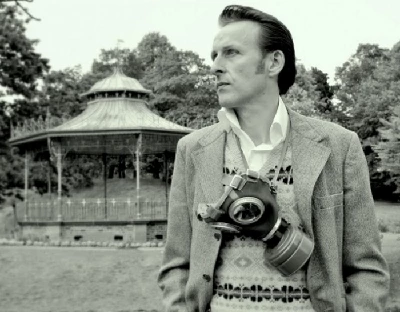
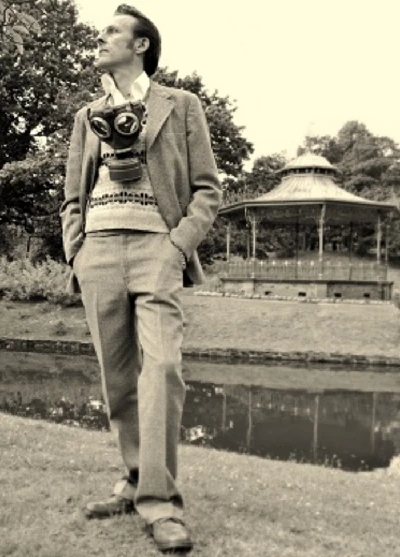
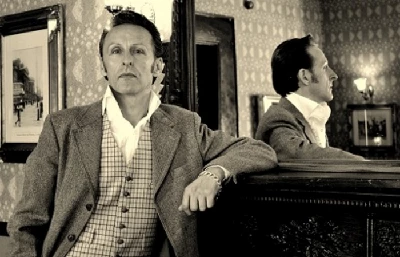
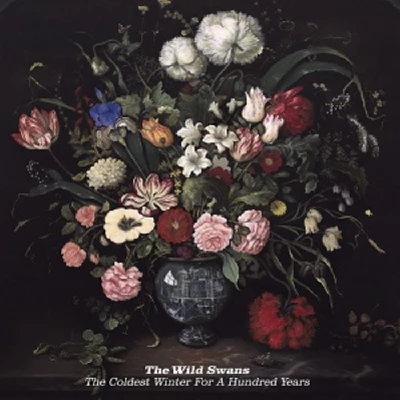
Visitor Comments:-
|
|
490 Posted By: Clare-Louise Gerbault, New Zealand on 29 Oct 2011 |
I think I could fall in love with Paul Simpson just from reading this interview.
|